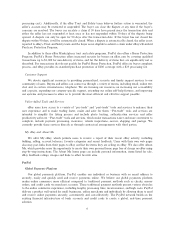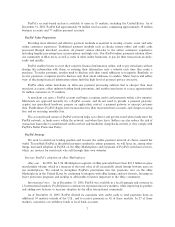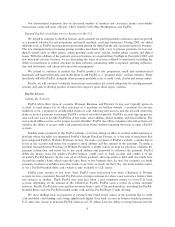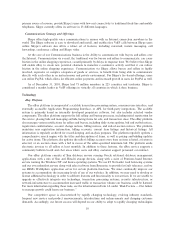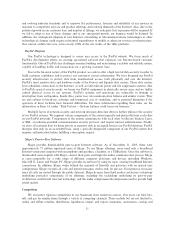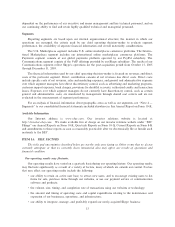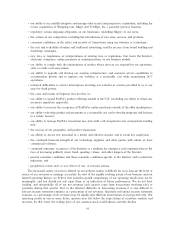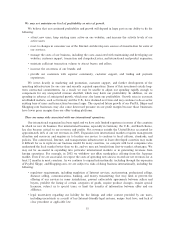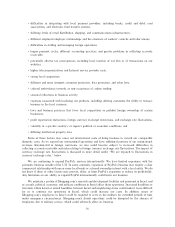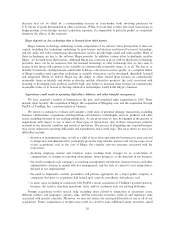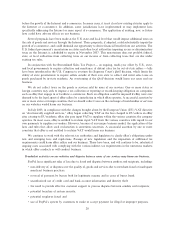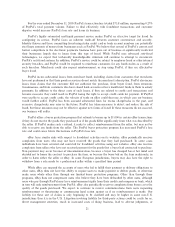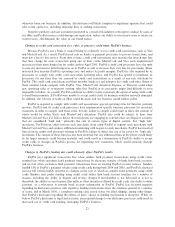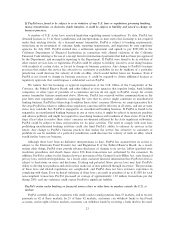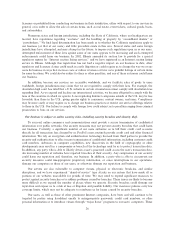eBay 2005 Annual Report Download - page 20
Download and view the complete annual report
Please find page 20 of the 2005 eBay annual report below. You can navigate through the pages in the report by either clicking on the pages listed below, or by using the keyword search tool below to find specific information within the annual report.‚ difficulties in integrating with local payment providers, including banks, credit and debit card
associations, and electronic fund transfer systems;
‚ differing levels of retail distribution, shipping, and communications infrastructures;
‚ different employee/employer relationships and the existence of workers' councils and labor unions;
‚ difficulties in staffing and managing foreign operations;
‚ longer payment cycles, different accounting practices, and greater problems in collecting accounts
receivable;
‚ potentially adverse tax consequences, including local taxation of our fees or of transactions on our
websites;
‚ higher telecommunications and Internet service provider costs;
‚ strong local competitors;
‚ different and more stringent consumer protection, data protection, and other laws;
‚ cultural ambivalence towards, or non-acceptance of, online trading;
‚ seasonal reductions in business activity;
‚ expenses associated with localizing our products, including offering customers the ability to transact
business in the local currency;
‚ laws and business practices that favor local competitors or prohibit foreign ownership of certain
businesses;
‚ profit repatriation restrictions, foreign currency exchange restrictions, and exchange rate fluctuations;
‚ volatility in a specific country's or region's political or economic conditions; and
‚ differing intellectual property laws.
Some of these factors may cause our international costs of doing business to exceed our comparable
domestic costs. As we expand our international operations and have additional portions of our international
revenues denominated in foreign currencies, we also could become subject to increased difficulties in
collecting accounts receivable and risks relating to foreign currency exchange rate fluctuations. The impact of
currency exchange rate fluctuations is discussed in more detail under ""We are exposed to fluctuations in
currency exchange rates,'' below.
We are continuing to expand PayPal's services internationally. We have limited experience with the
payments business outside of the U.S. In some countries, expansion of PayPal's business may require a close
commercial relationship with one or more local banks or a shared ownership interest with a local entity. We do
not know if these or other factors may prevent, delay, or limit PayPal's expansion or reduce its profitability.
Any limitation on our ability to expand PayPal internationally could harm our business.
We maintain a portion of Shopping.com's research and development facilities and personnel in Israel, and
as a result, political, economic and military conditions in Israel affect those operations. Increased hostilities or
terrorism within Israel or armed hostilities between Israel and neighboring states could make it more difficult
for us to continue our operations in Israel, which could increase our costs. In addition, many of
Shopping.com's employees in Israel could be required to serve in the military for extended periods of time
under emergency circumstances. Shopping.com's Israeli operations could be disrupted by the absence of
employees due to military service, which could adversely affect its business.
16


